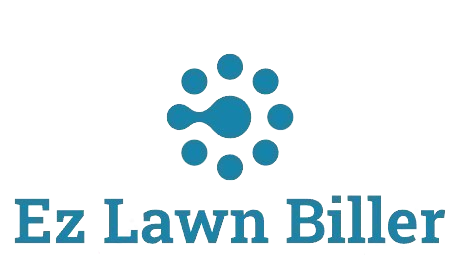Simplify your lawn care business with the art of delegation. Learn practical delegation tips for better efficiency and service quality.
The Art of Delegation for Lawn Care Business Owners
As a lawn care business owner, mastering the art of delegation can be the key to unlocking your business’s potential. Delegation is not just about passing tasks off to others; it’s a strategic approach that enhances productivity, improves service delivery, and allows you to focus on what you do best. In this blog post, we will explore the importance of delegation, practical strategies for effective task distribution, and how utilizing tools like Lawn Biller Software can enhance your delegation efforts.
Delegation is particularly relevant in the lawn care industry, where the demands of multiple clients can quickly overwhelm a single operator or a small team. By effectively delegating tasks, you can ensure that your business runs smoothly, providing top-notch services while optimizing your time and resources. We will cover essential aspects of delegation, including identifying tasks to delegate, selecting the right team members, and ensuring accountability.
Understanding the Importance of Delegation
Delegation is vital for any business, especially in the lawn care sector. It allows you to distribute responsibilities among your team, enabling each member to focus on their strengths. Not only does this improve efficiency, but it also enhances employee satisfaction as team members feel trusted and valued.
Studies show that businesses that implement effective delegation strategies often experience increased productivity. In fact, a survey by the American Management Association reported that 57% of employees felt more engaged when they were trusted with more responsibility. By empowering your employees, you create a vibrant work environment that fosters growth and innovation.
Moreover, delegation helps you manage your workload effectively. As a lawn care business owner, you may often find yourself juggling multiple tasks—from scheduling services to managing client relationships. Effective delegation allows you to free up time, enabling you to focus on strategic growth areas such as marketing or client acquisition.
Identifying Tasks to Delegate
The first step in effective delegation is identifying which tasks can be handed off to others. Not all tasks are suitable for delegation; understanding which ones are can make a significant difference in your business’s operation.
Start by assessing your daily activities. Identify repetitive tasks that consume valuable time without contributing significantly to your business’s growth. For instance, routine administrative tasks like invoicing can be automated using a lawn service software like Lawn Biller Software, freeing you to concentrate on higher-priority activities such as client consultations or service quality improvement.
Additionally, consider delegating tasks that require specific skills. If you have a team member who excels in customer service, allow them to handle client communications or follow-ups. This not only ensures the task is completed with expertise, but it also enables you to leverage your team’s strengths effectively.
Remember, delegating does not mean relinquishing control. It’s about empowering your team while maintaining oversight. Establishing clear guidelines and expectations before handing off tasks is crucial for success.
Selecting the Right Team Members
Once you’ve identified the tasks to delegate, the next step is selecting the right team members to take them on. Not everyone is suited for every task, so understanding your team’s strengths and weaknesses is critical.
When considering delegation, look for individuals who have a demonstrated track record in relevant areas. For example, if you need someone to manage your social media presence, choose a team member who shows enthusiasm for digital marketing and has experience in engaging clients through online platforms.
Moreover, foster an environment where team members feel comfortable sharing their preferences regarding their roles. This not only ensures they are motivated to take on delegated tasks but also enhances the overall effectiveness of your delegation strategy.
It’s also beneficial to encourage cross-training within your team. By training team members in various areas, you create a more versatile workforce. This flexibility means that if someone is unavailable, another team member can step in to handle the delegated tasks seamlessly.
Establishing Accountability
Delegating tasks without establishing accountability can lead to confusion and missed deadlines. It’s essential to create a framework for accountability, ensuring that team members understand their responsibilities and the importance of meeting deadlines.
Start by setting clear expectations. When delegating a task, communicate the desired outcome, deadlines, and any resources they may need. Regular check-ins can also be helpful. Schedule brief meetings to discuss progress, address any challenges, and offer support. This not only helps keep projects on track but also reinforces the idea that you are invested in their success.
Utilizing tools like Lawn Biller Software can also aid in accountability. This software allows you to track task progress, manage client details, and automate billing processes, which can significantly streamline operations and ensure that nothing falls through the cracks.
Additionally, celebrate successes. Acknowledge when a team member completes a delegated task successfully. Recognition can boost morale and motivate your team to take ownership of future responsibilities.
Utilizing Technology for Delegation
Incorporating technology into your delegation strategy can significantly enhance efficiency. With the right tools, you can streamline processes, improve communication, and ensure that tasks are completed on time.
For lawn care business owners, utilizing a comprehensive lawn service app such as Lawn Biller Software can transform how you manage delegated tasks. This software allows you to automate scheduling, invoicing, and client communications, reducing the administrative burden on your team.
Additionally, project management tools can help you assign tasks, monitor progress, and facilitate communication. Platforms like Trello or Asana allow you to create task boards, making it easy for your team to see what needs to be accomplished and who is responsible for each task.
By leveraging technology, you not only simplify your processes but also empower your team to take initiative, knowing they have the tools and resources they need to succeed.
Best Practices for Effective Delegation
To maximize the benefits of delegation, consider adopting these best practices:
- Communicate Clearly: Ensure that your team understands the task, its significance, and the expected outcomes. Clear communication reduces misunderstandings and sets a solid foundation for successful delegation.
- Provide Training and Resources: Equip your team with the necessary training and tools to complete their tasks. This investment in their development enhances their confidence and ability to perform effectively.
- Trust Your Team: Once you’ve delegated a task, resist the urge to micromanage. Trusting your team to execute their responsibilities fosters a sense of ownership and accountability.
- Solicit Feedback: After the completion of delegated tasks, seek feedback from your team about the process. This will help you identify areas for improvement and enhance your delegation strategies over time.
- Evaluate and Adjust: Regularly review your delegation processes. Assess what works and what doesn’t, and be willing to adjust your strategies as your business evolves.
By integrating these best practices into your delegation strategy, you can create a more efficient and empowered team, ultimately leading to a more successful lawn care business.
Dealing with Challenges in Delegation
While delegation offers numerous benefits, it can also present challenges. As a lawn care business owner, it’s crucial to be prepared for potential obstacles that may arise.
One common issue is the fear of losing control. Many business owners worry that delegating tasks will lead to a decline in quality or service delivery. To mitigate this, establish clear guidelines and maintain open lines of communication. Regular check-ins can alleviate concerns and ensure that tasks are executed to your standards.
Another challenge can be resistance from team members who may feel overwhelmed or unsure about taking on additional responsibilities. Addressing these concerns directly by providing support, training, and encouragement can help ease their apprehensions. Make it clear that delegation is not just about offloading work but rather about fostering growth and collaboration.
Finally, be prepared for occasional mistakes. Mistakes are a natural part of the learning process. When they occur, view them as opportunities for growth rather than failures. Use these experiences to provide constructive feedback and reinforce learning.
Conclusion
In conclusion, mastering the art of delegation is essential for lawn care business owners seeking to improve efficiency and service quality. By identifying tasks to delegate, selecting the right team members, and establishing accountability, you can create a more streamlined operation.
Utilizing technology, such as Lawn Biller Software, can further enhance your delegation efforts, allowing you to focus on strategic growth and client satisfaction.
Effective delegation not only helps you manage your workload but also empowers your team, leading to increased engagement and overall business success. As you implement these strategies, remember that delegation is an ongoing process that requires evaluation and adjustment. Embrace the journey, and watch your lawn care business flourish as you create a more dynamic and efficient team.




